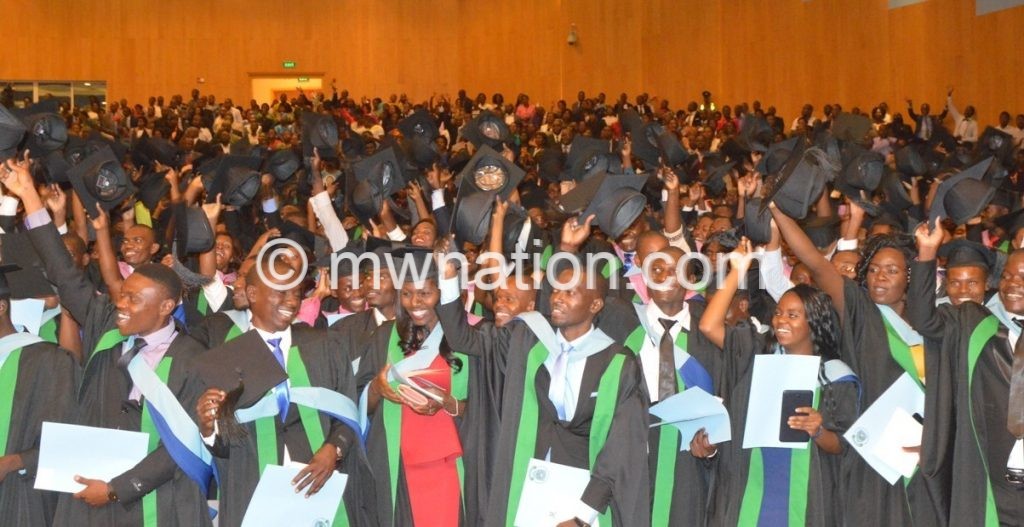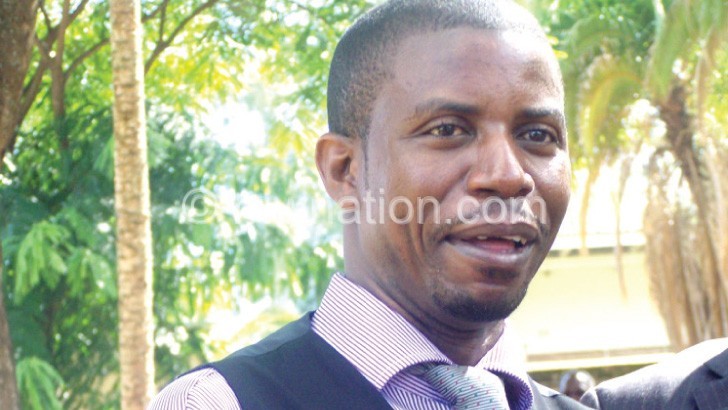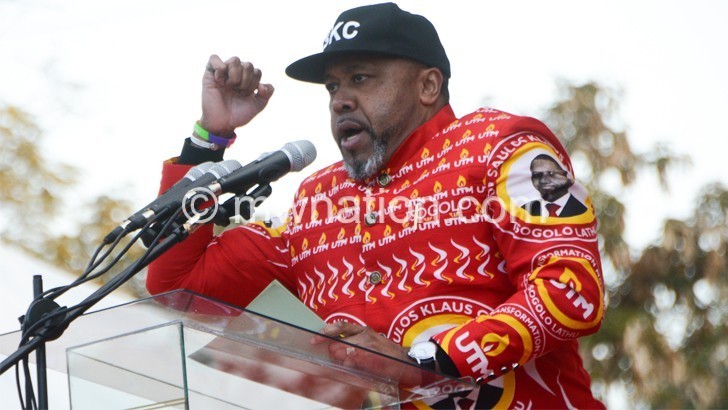Quota system under microscope
Civil society organisations and other interested groups in the education sector are pressing government to review the quota system for selecting students into public universities and colleges.
The system is also applied in the selection of students to national secondary schools.

The development comes a few weeks after Vice-President Saulos Chilima branded the system as “evil and satanic”, vowing to discontinue it if he were given mandate to rule the country after next year’s elections.
But Chilima has not indicated what he will replace the quota system with.
There are two schools of thought—one supporting the system for which proponents feel that some groups, regions or districts have dominated access to higher education due to economical, historical, political and ethnical reasons, among others.
Proponents of the review argue that in its current state the quota system, also loosely referred to as equitable system for admission into public universities, is discriminatory and illegal as it violates Section 20 (1) of the Constitution which guarantees the right to education as a non-derogated freedom, according to a presentation by Civil Society Education Coalition (Csec) executive director Benedicto Kondowe to the Parliamentary Committee on Education on August 18 2018.”

According to Kondowe, they want the criteria for selection to be based on the population of Form Four students in each district as opposed to crude populations.
He argues that the criteria that require that the remaining spaces from districts that are unable to fully absorb their quota should be shared by neighbouring districts within the same region to be discarded as it suggests a regionalistic conception of the policy as it still disregards that there could be more deserving students in other regions than where the quota for some districts is unexhausted.
“This system should change district of origin to district of residence as a basis for selection; it should have a special quota for top brilliant students, and a special quota for students from Community Day Secondary Schools and rural schools/districts. It should reserve a minimum of 10 spaces for each district (and take into account population size of district) and should maintain the current affirmative action for males and females at 50/50 and persons with disabilities (a quota equal to a minimum of 10 percent), among others.
Another school of thought as espoused by education analyst Limbani Nsapato is that government should introduce a system that would address both proponents and opponents of the quota system, which in relation to the Constitution, would be allowed under affirmative action.
In an e-mailed response on Wednesday, Nsapato said: “The solution, therefore, lies in the middle of the two extremes. This solution is not to entirely abandon quota or abandon merit systems, but put in place a transformed quota system which should address the fears of both sides of the divide.”

To this end, the CSOs have planned a conference slated for next month, where stakeholders will discuss issues pertaining to the matter.
Executive director of Church and Society for Livingstonia Synod Moses Mkandawire said they want to provide a space for dialogue for various stakeholders to discuss the issue openly.
“It is not like we have a premeditated agenda. All we are trying to do is to help each other make our country better,” said Mkandawire.
In 2008, government introduced what it termed the equitable system for selecting students into institutions of higher learning. Under the new system which is still in force, cities of Blantyre, Lilongwe, and Zomba, and Mzimba district (including Mzuzu city) are divided into urban and rural and each one of them is guaranteed 10 spaces in the university. The system also guarantees 10 places for qualified and deserving students from each district on full government sponsorship.
The system currently in use followed a recommendation from the University of Malawi (Unima) Council in 2007 to the Senate, which recommended that the quota system was to be re-introduced in 2008 although it noted that the policy shift required time and thorough consultation.
According to Kondowe, Council of Unima, however, noted: “All the factors for or against quota may have just been impressionistic and, therefore, requested the Centre for Education Research and Training (Cert) to conduct a comprehensive study to confirm or trash the impressions which has not been done.”
Cert, which is based at Chancellor College is yet to conduct the study and did not respond to our questionnaire as to why they have not carried out the study as recommended by the Unima Council.
Spokesperson for Ministry of Education Lindiwe Chide, who confirmed receiving an e-mailed questionnaire on the matter did not also respond on the ministry’s position as we went to press.
National Council for Higher Education(CEO) chief executive officer Ignacio Jimu Nche’s mandate in matters of selection to public universities is limited to harmonisation of the process. The key actors are the selection committees from public universities.
In a telephone interview, Parliamentary Committee on Education chairperson Elias Chakwera said his committee supports calls to review the selection criteria for students in public universities.
“Although the issue [about the conference] is yet to be presented to us officially, we feel it is in public interest and if it is brought to our attention, we shall take it up accordingly. We are aware that there are reservations with regard to the criteria used to select students into public universities. That is why I say that quota system must be reviewed. I know this issue is politically sensitive but let us face it. We need to agree on how the process should be guided,” he said.
The policy has faced stiff resistance from some groups, including the Livingstonia Synod of the Church of Central Africa Presbyterian (CCAP).
Church and Society of the Livingstonia Synod executive director, Moses Mkandawire said: “There have been various narratives on this matter and we thought creating a discussion forum would be ideal because it is an issue that touches many lives across the country. It is also an economic issue so its importance is unquestionable. As Church and Society, we will be there to weigh in on our views,” he said.
The synod’s general secretary Reverend Levi Nyondo has praised Chilima and his United Transformation Movement for promising to abolish the quota system, saying the synod would support him.





